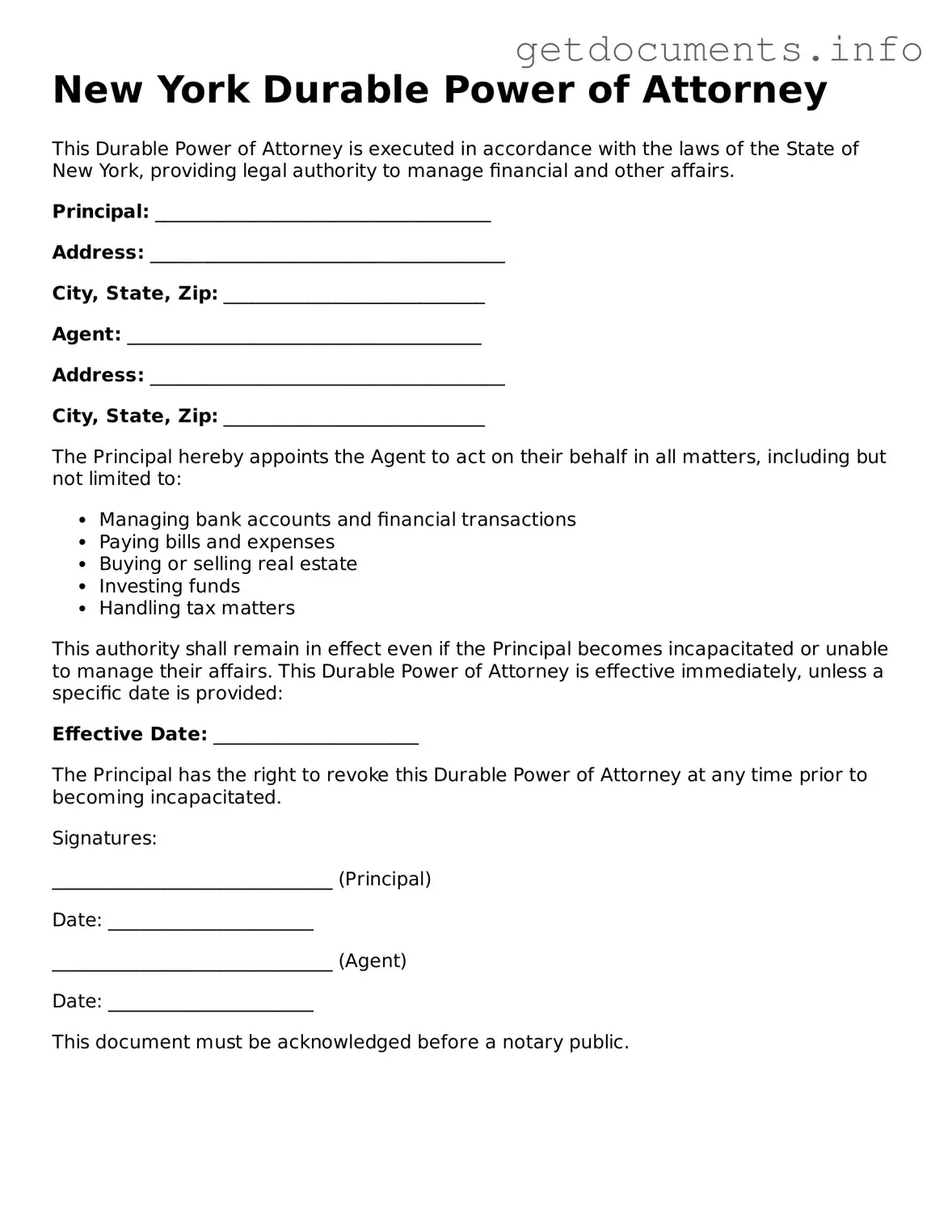Free Durable Power of Attorney Template for New York
A New York Durable Power of Attorney form is a legal document that allows an individual to appoint someone they trust to make financial and legal decisions on their behalf, even if they become incapacitated. This important tool ensures that your affairs are managed according to your wishes when you are unable to do so. Ready to take control of your future? Fill out the form by clicking the button below.
Access Durable Power of Attorney Editor

Free Durable Power of Attorney Template for New York
Access Durable Power of Attorney Editor
Got places to be? Complete the form fast
Fill out Durable Power of Attorney online and avoid printing or scanning.
Access Durable Power of Attorney Editor
or
⇩ PDF File
